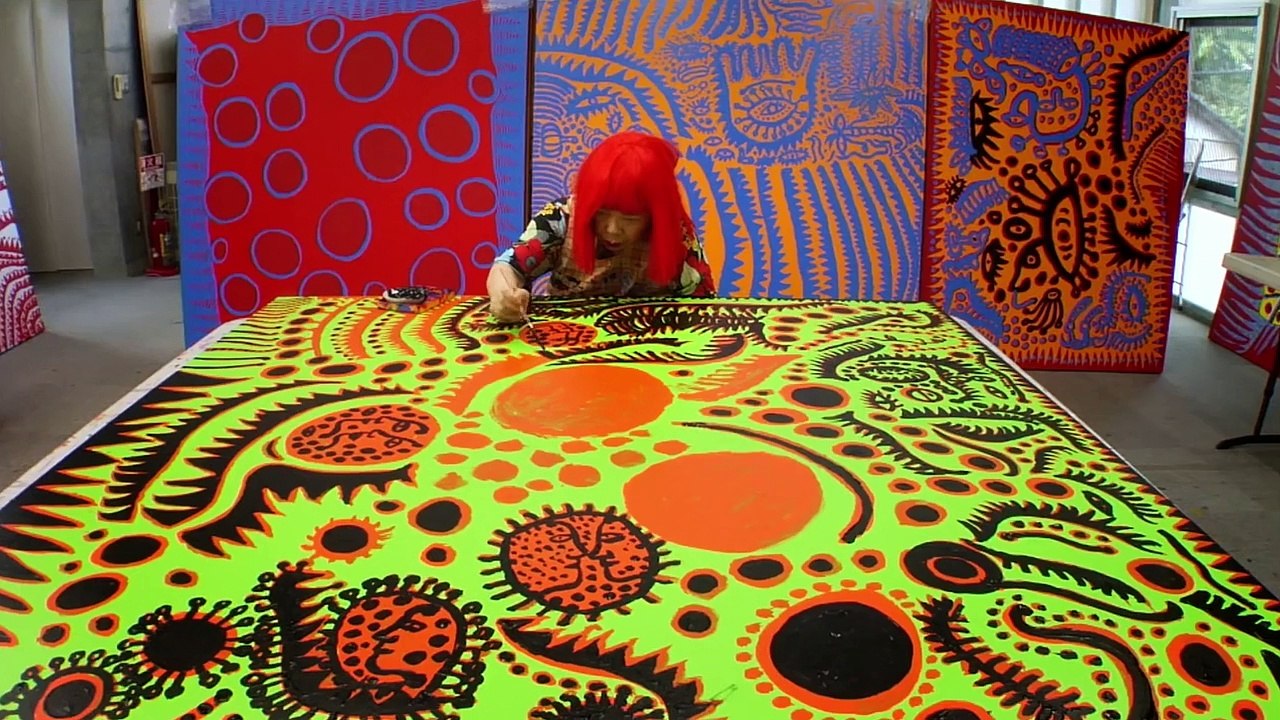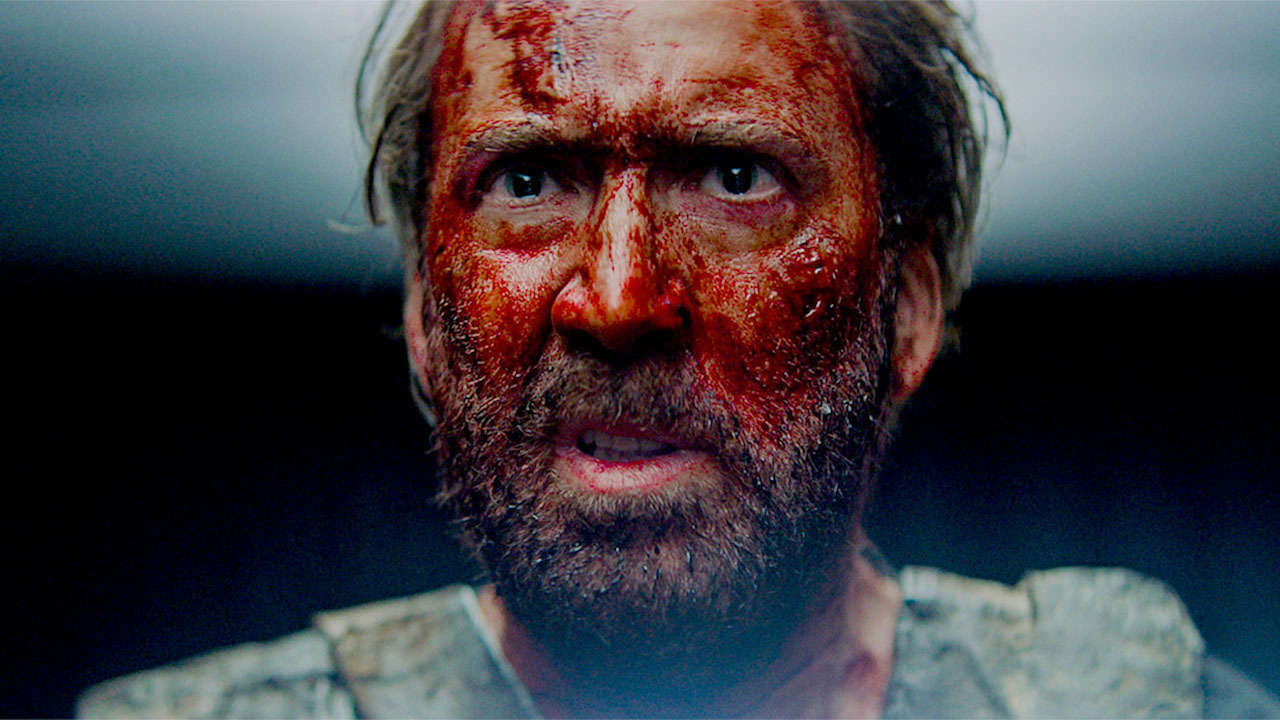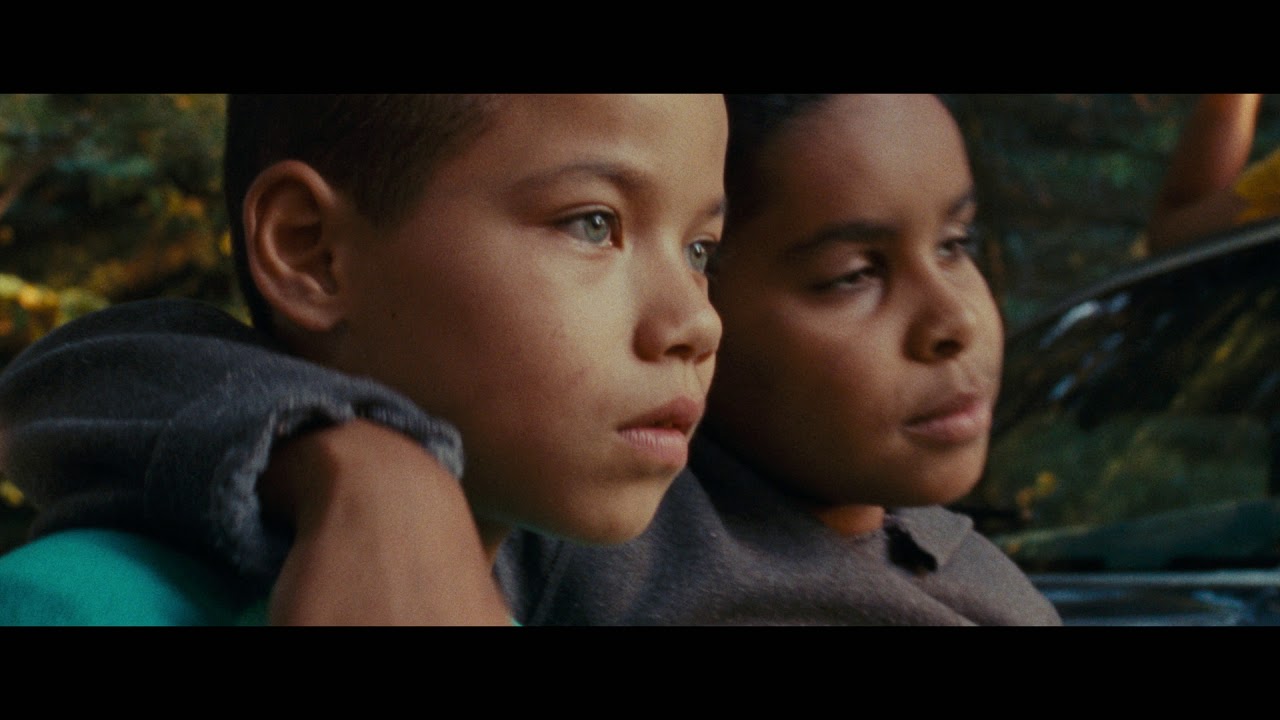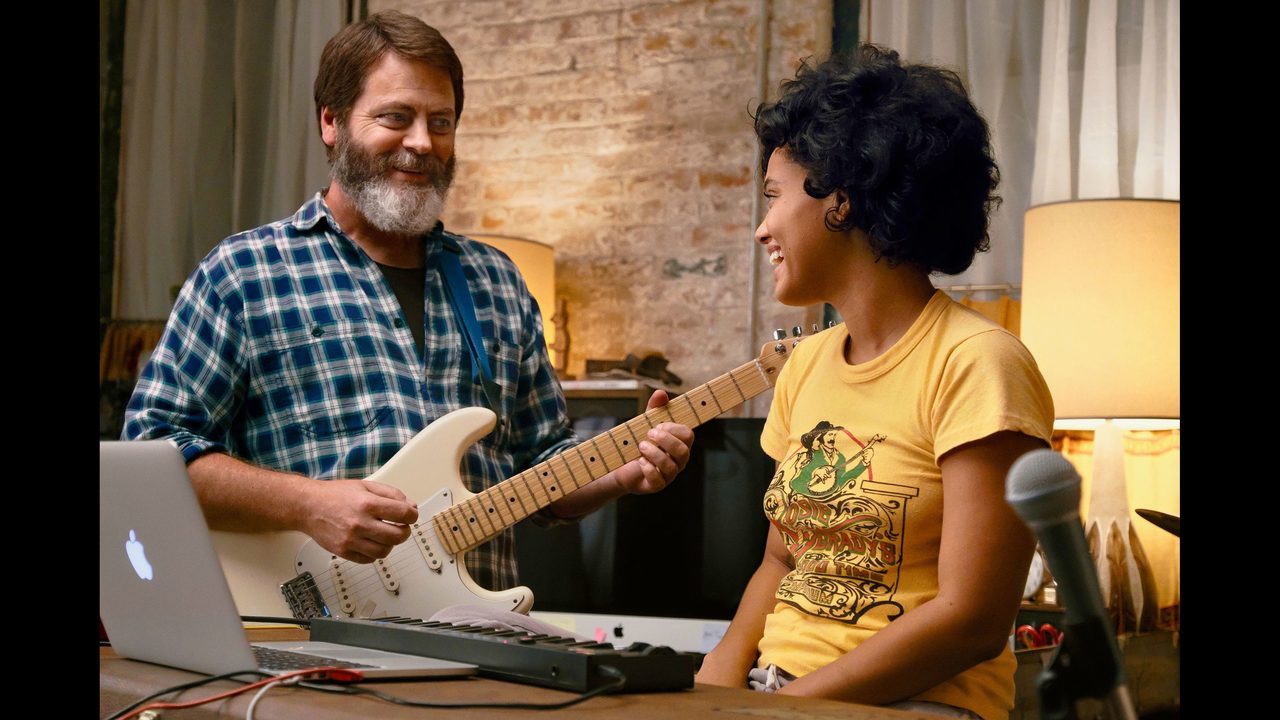Josephine Decker‘s work carries with it a high-wire sense of danger, an aesthetic of possibility and collapse. Whether in the costumed genre trappings of Thou Wast Mild and Lovely, the shifting and uneasy ambivalence of Butter on the Latch‘s just-this-side-of-horror stay at a Balkan folk gathering, or (especially) the self-immolation of Flames, in which Decker’s camera focused with supreme discomfort on her own relationship, the viewer is simultaneously at a remove and much, much too close, piecing together fragments with a mounting sense that the whole edifice could topple.
Reviews
When we talk about “chosen families,” we usually mean close-knit circles which, through our agency in their construction, stand as more authentic than the biological ones we were born into. They might be safe havens from the abusive homes to which fate has assigned us, but even when they’re not, the simple act of selecting them grants them a different, truer status.
“The world is a mystery to me,” the awkward, aspiring writer Lee Jong-su tells his new “Gatsby-like” acquaintance Ben, at a moment of a maximum queasiness in Chang-dong Lee‘s Burning. The film is a mystery to us, not just in its genre mechanics but in terms of how we are supposed to engage with it: Burning talks and moves like a mystery, lingering on images in ways we’ve been trained to recognize as meaningful, before trailing away like smoke.
With several months still to go, and no shortage of forthcoming releases, there’s already been talk about 2018 as The Year of Documentaries. Heather Lenz’s Kusama: Infinity probably won’t top too many year-end lists of these, but it merits inclusion: a solid, empathetic look at an artist whose body of work deserves the attention it’s finally receiving.
I will say, “Mandy feels like the last movie I will ever be disappointed by.” And you will say, “That’s ridiculous. We will all go on getting our hopes up and sometimes be disappointed on a scale from rarely to usually, depending on the tightness of your clenched asshole.”
One of the most insistent and silly tropes in coming-of-age films is the Preternaturally Articulate Child, the little tyke who functions in the narrative as, essentially, a grown-up trapped in a small body. Sometimes — particularly in that heady period of the late ’80s that gave us Like Father, Like Son, Vice Versa, and Big, among others — we compensate for this awareness with literal body-switch stories, but more often we just put alarmingly adult phrases and observations in the mouths of kids.
The first performance of The Seagull is one of the legendary disasters of the theater. The audience booed — but, perhaps more tragically for Chekhov, they laughed, and they laughed in the wrong places. They laughed at the young writer Treplyov’s symbolist play with which the story opens and at the pretensions of the younger characters.
Boots Riley‘s sense of humor has always tended to the pointedly outlandish, indignant outrage paired with a much goofier sensibility. Case in point: the class-conscious dance track “Five Million Ways To Kill A CEO” from his legendary Oakland hip-hop ensemble The Coup, in which Riley, voice swaggering over the groove, lays out the case against a ruling class who “own sweats shops, pet cops and fields of cola / Murder babies with they molars on the areola,” before suggesting a number of ways to rectify the situation.
Increasingly, our mainstream cinema seems consumed with the act of storytelling itself. We can add American Animals to a list that already includes recent films as different as I, Tonya and Bisbee ‘17. This inward turn is nothing new for the avant-garde and the art-house, long characterized, from Bergman to Godard to Kiarostami, by the foregrounding of artifice.
Calling it “the season’s most huggable film” shortchanges the charm of Hearts Beat Loud, but it’s not entirely wrong.
There are undercurrents of deep melancholy beneath all the indie-rock, Red Hook whimsy that ground it in something real, relatable, and honest.










